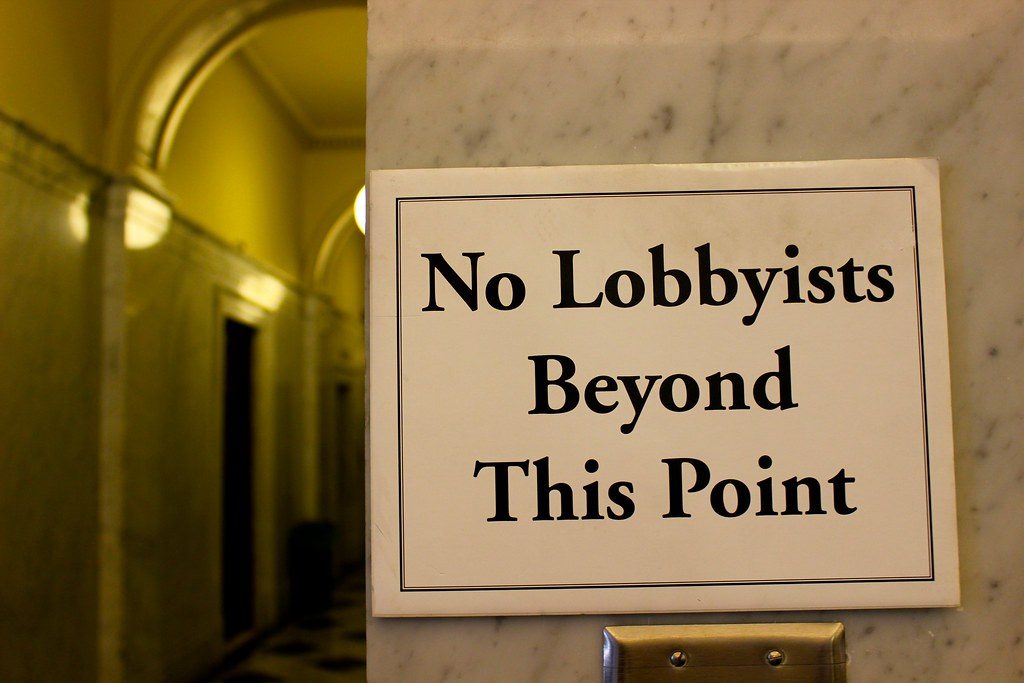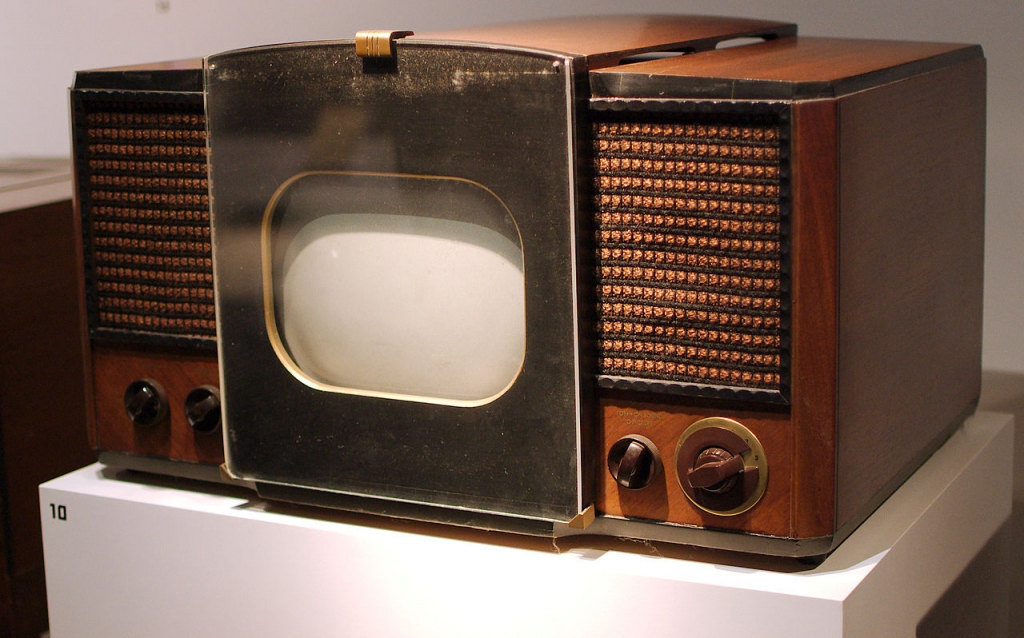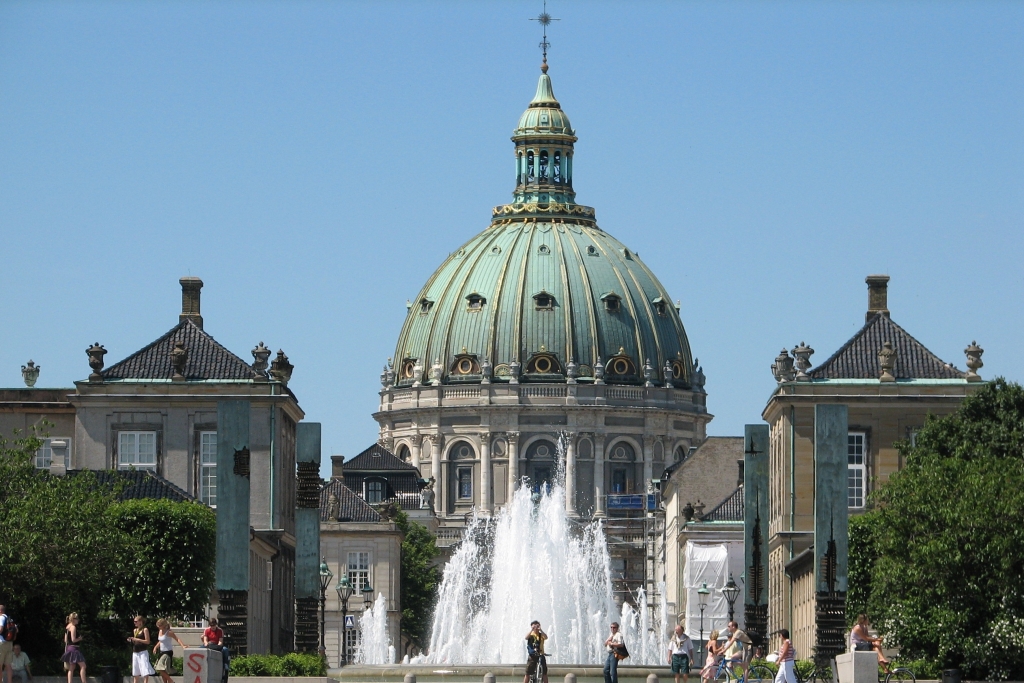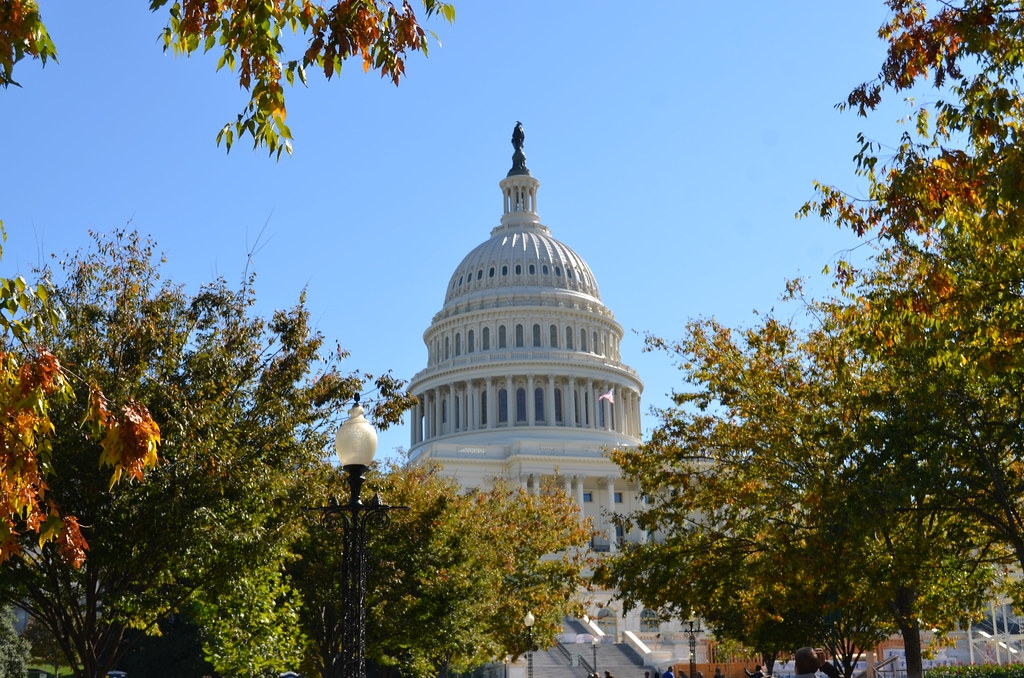Interest Groups & Lobbyists
Political interest groups are groups of people who share common values and concerns.
They try to influence the government to pass laws that benefit their group.
Although interest groups are a great way to work together to make a difference, they are often controversial.
Some wealthy interest groups are accused of “buying votes.”
For example, they might contribute a large sum of money to a politician’s campaign if the politician will vote their way on the issues that matter to them.
How do interest groups influence the government?
Interest groups send representatives called lobbyists to Washington, D.C. and to state capitals to meet with government officials, testify at congressional hearings, present research, talk with the media, and more.
Lobbyists also entertain government officials, taking them out to dinner or to shows. Sometimes, they offer legal advice and help draft laws.
In addition, interest groups run advertisements to influence voters and elected officials. This may include online marketing, letters sent through the mail, magazine ads, and television commercials.
And as mentioned above, they often contribute financially to political campaigns.
Although they may not explicitly tell politicians how to vote, politicians likely understand that voting against their interests will mean no more donations in the future.
Types of Interest Groups
There are many types of interest groups. The largest category is economic interest groups, which represent big business.
These include large corporations, individual unions, and trade associations. They support legislation that will help their businesses profit and prosper.
Groups of workers may advocate for better treatment and pay.
Public interest groups aren’t usually seeking to directly profit from the policies and changes they’re seeking. Instead, they work on social issues that they think will improve the lives of the public.
Government interest groups bring the issues of local and state governments to the national government. They also try to secure federal grants (money) for their local or state governments.
There are also religious interest groups, civil rights interest groups, and ideological interest groups.
Ideological interest groups support legislation and policy based on their political ideology, usually liberal or conservative.
Finally, single-issue interest groups are formed to fight either for or against one single issue.
For example, the National Rifle Association (NRA) and the National Coalition to Ban Handguns (NCBH) represent two sides of a single issue.
Another example is Mothers Against Drunk Driving (MADD), which focuses on heavier penalties for driving under the influence of alcohol.
Fun Facts About Interest Groups
Lobbyists “lobby” for their groups’ interests. The term “lobby” originated when people used to wait in the lobby outside of Congress to talk to their representatives.
Many interest groups have national headquarters in Washington, D.C. for convenient access to policymakers and legislators.
Most interest groups focus on issues within the United States, but some emphasize foreign policy.
One example is the American Israel Public Affairs Committee (AIPAC), which is concerned with the relationship between Israel and the United States.
Public interest groups include animal rights and environmental issue activists like PETA and Greenpeace.
People often criticize interest groups because they believe businesses and corporations with the most money can also have the most influence and power in government.








